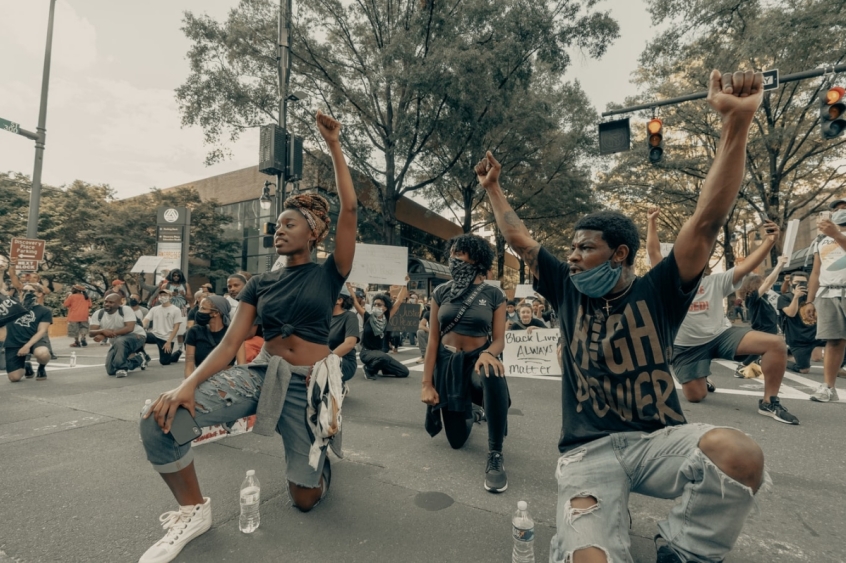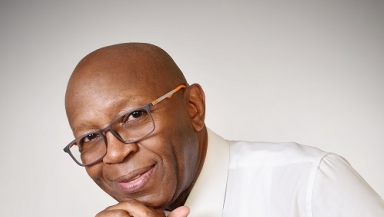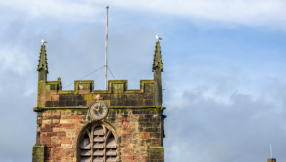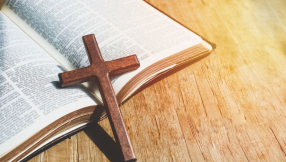
For weeks now, protests have been staged around the world against racism following the death of George Floyd in Minneapolis.
In the UK, black people have taken to the street in their droves to call for racial justice, and the statues of slave traders have been torn down.
Christian Today spoke to Dr Joe Aldred, who is responsible for Pentecostal and Multicultural Relations at Churches Together in England, to find out what he thinks about the protests and why they have touched a nerve far beyond the shores of America.
CT: George Floyd's death seems to have touched a nerve internationally in an unprecedented way. Why do you think what is happening in America is resonating so much with black people in the UK and far beyond the US? Are the issues affecting the black community in the US the same as here in the UK? (police brutality for example)
JA: No one could have predicted George Floyd's untimely death or the extent and intensity of the anger and demand for change that has erupted in the US and beyond. I welcome this simultaneous combustion of racial justice consciousness. The nerve that George Floyd's public slaying by a police officer - while his colleagues looked on even as passers by protested - was a historic one made tender by the enduring injustice that has been gnawing away at black people's patience for years - centuries, even.
This is linked to feeble interpretation of existing legislation that connives with white supremacy and that results in US police forces being given the green light to rain violence, degradation and death upon black Americans with impunity – historically officers get to keep their jobs, or if they lose them, they are simply re-employed or re-deployed. But, crucially, they are never convicted of the obvious crimes committed, however compelling the evidence of guilt.
In my view, this devaluing of Black life has its roots in the Transatlantic Slave Trade, chattel slavery, colonialism, apartheid, and Jim Crow laws. Black people who live in 'Western' societies understand this through experience and observation to a lesser or greater extent, which mean this was a fire set to blaze and simply waiting for a match to ignite it. Many white people seem unaware of the heightened resentment black people have towards the racism that blights so many black lives in a world that moves to the tune of whiteness.
CT: The Church of England and Methodist Church have acknowledged historic racism in their institutions. What are your thoughts on such acknowledgements?

JA: Sadly, Western Churches have been complicit in the history of the practice of racism. Therefore any acknowledgement of that complicity needs to go deeper and further than being stirred by the current incident of George Floyd's killing and the Black Lives Matter-led protests that have so effectively channelled the raw emotion of exasperation, grief, anger and demand for justice.
These Churches need to take this opportunity, not by any means their first, to look deep into their souls and reckon with their history concerning black people; then act in a spirit of reparatory justice. Racial injustice is a systemic issue in society and in the Western Church. The Church must call for systemic solutions that match the seriousness of historic and contemporary racial injustice.
CT: It's taken a long time for the wider Church to recognise racial injustice in its own backyard? What can be done to bring healing and ensure racial justice and equality within the Church going forward?
JD: It is not clear that the wider Church now truly recognises racial injustice in its own backyard. In my church tradition it is clearly taught that the only way to redemption or salvation for a sinner is repentance. Repentance is said to be a turning around. I believe that this kind of change in attitudes in Western Churches has failed to come because repentance for racism has been half-hearted.
Repentance calls for a high price of giving up and restoring what has been stolen. If you have stolen a person's or a people's humanity, repentance requires the full restoration of that humanity by destroying all of the infrastructure that maintains the suppression or slaying of that humanity.
Western Churches could start where some universities have started recently, by researching how much of their 'wealth' has been based on stolen or exploitative gains; quantify that, say sorry and negotiate settlement with your victims. If in restoration one side doesn't lose anything and the other side doesn't gain anything, restoration has not happened. Action that costs speaks much louder than words.
CT: Individual Christians can pray but is there anything practical they can and should be doing to support BAME communities both inside and outside the Church?
JA: The Revd Al Sharpton said at George Floyd's funeral, something to the effect of: 'we are not asking for favours, we are asking for justice.' I am not inclined to advise white Christian friends what to do about racism apart from search their conscience and answer the question: do you see people of darker complexion than you to be as human as you?
The anti-African history of the past 500 years has seeped deep into the Western psyche and uprooting that through reading more widely, listening deeply to the other and spending quality time with them may be some of the steps that can prove useful. Praying for one another is fine but it is not a substitute for engagement with matters of racial justice and taking appropriate, costly action.
CT: What do you think about the tearing down of statues of slave traders? Is it long overdue? Do we need more diversity in British monuments?
JA: Sometimes democracy needs a push and the tearing down of some statues can provide the impetus to start a conversation about the nature and place of iconic statues in society. It cannot be right that mass murderers are among the statues we look upon and look up to, simply because they were put there at a time when all they were known for was their philanthropy, for example, and a monochrome society exercised a now curious disinterest in where their money came from.
We need a public conversation about what statues and other icons are suitable for today's multicultural society, they need to tell the story of our corporate history - and speak to our ideals. I don't, though, agree with discarding statues. They tell stories not just about the person depicted, but the times they lived in and how and why society viewed them as it did, and why they may be thought of differently now. Some belong in museums and other places of education.
My mother used to say, when you know better, do better. Now we know better, we owe it to ourselves to do better. The God in whose image and likeness we are all made calls us to that higher place of loving our sister and brother, our neighbour, as we love ourselves.













